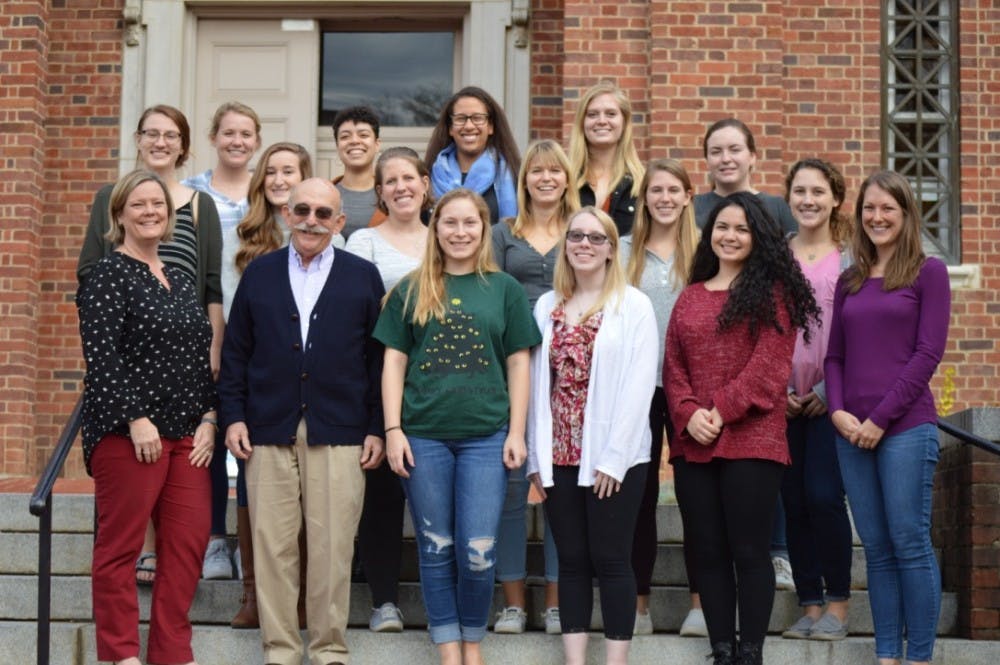A UNC psychology class is enhancing students' educational experiences by allowing them to spend more time researching than in the classroom.
In a section of PSYC 395, undergraduate students assist two professors in the Department of Psychology and Neuroscience: research assistant professor Jennifer Coffman and F. Stuart Chapin Distinguished professor emeritus Peter Ornstein. The professors are conducting an ongoing study of what parents and teachers do to support children's memory and their achievements in mathematics and academics.
Ornstein and Coffman started working together in 1998, while Coffman was a graduate student. In 2002, the pair began receiving grants for the study. Since then, different students have been helping with the study’s research each year during the PSYC 395 course, which can span one to two semesters.
“The reason that I use that course and like that course so much is that it provides an opportunity for undergraduate students at Carolina to engage deeply in ongoing research projects,” Coffman said. “Students can get academic credit and research experience at the same time.”
The Institute of Education Sciences funds the study, which assesses how North Carolina students in kindergarten through second grade perform, how teachers speak during class and how these children converse with their parents at home.
This multi-level approach, Coffman said, is useful in figuring out what teachers naturally do to help their students learn effectively.
“The goal, in the long-run, is to develop programs for teachers to give the science back — to help them understand what they could be doing in the classroom to help their students,” Coffman said. “And for us, that's the goal: to create training opportunities and professional development opportunities for teachers in the classroom.”
In PSYC 395, students learn how to research for this particular study, collect data and read and write papers about different research articles. They eventually write their own mini grant proposal in which they explain research questions that interest them.
Jennifer Shelton, a recent UNC graduate who is now working on an additional bachelor's degree, took the course her junior year. Shelton said that as an undergraduate student, she appreciated the direction the course gave her.



